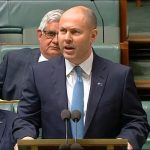Mid-market businesses upbeat: KPMG Enterprise pre-budget survey

Australia’s mid-market businesses are feeling upbeat about the future, KPMG Enterprise’s annual Pre-Budget Pulse Check has found, with nearly half predicting significant wages growth.
The survey of over 100 mid-tier business leaders found that more than half (54 percent) were confident about growth prospects for the rest of 2022 and the next three years, with over a quarter (26 percent) predicting growth of 10 percent or more during that timescale. A third (35 percent) were neutral and 11 percent pessimistic.
On wages, 44 percent of leaders believed wage growth would be between 4-8 percent, with a small number predicting rises of more than 8 percent. Another 44 percent said rises would be more restrained, between 2-4 percent.
Increased competition for talent appears to have had a direct bearing on these wage forecasts, with more than two-thirds (69 percent) of respondents saying that recruiting and retaining talented staff was their biggest challenge – this was clearly the top issue facing businesses.*
Clive Bird, KPMG Enterprise Tax Leader, said: “It is encouraging that Australia’s mid-market sector, the heartbeat of the national economy, is feeling reasonably confident, given the past two years of COVID disruption, and the authorities will probably be encouraged to see that businesses expect there to be steady wage growth over the next three years. While this may introduce cost pressures for business, it’s a positive sign for the Australian economy overall.”
Cost and margin pressures (56 percent) and supply chain disruption (41 percent) were the second and third biggest issues facing business leaders. In the corresponding KPMG Enterprise survey a year ago, these were the top two challenges, with staff recruitment only third – showing the rise of the talent issue in Australia over the past twelve months.
Almost all business leaders surveyed expected interest rates to rise in 2022, and a large majority (71 percent) felt their debt levels were low enough to be manageable. Still, over a quarter (26 percent) had concerns here, acknowledging that an interest rate hike would impact their business and its profitability.
In terms of macro-economics, the overwhelming majority believed it was time for the Federal Government to start repaying debts, with two-thirds nominating economic growth and increased productivity as their preferred way to achieve this.
If taxes have to rise, then the best way to do this was via a GST increase, business leaders said. But a sizeable minority (28 percent) said tax rises should be avoided if at all possible. 93 percent said the Budget should include tax measures to help boost growth in the mid-market sector, with 61 percent calling for major tax reform. Re-establishing critical manufacturing and greater investment in training programs to address the skills shortage were also priorities.
Clive Bird said: “It is pleasing to see that there is support from business leaders for retaining the Instant Asset Write-off over the long-term, increasing access to R&D Tax Incentives and innovation and start up tax incentives, for example. These are the sort of measures that support growth and business activity in the mid-tier market. It is clear that while businesses accept that government debt repayment has to come, tax rises are still not their preferred way of doing this. Measures to increase growth and productivity are favoured.”
He added: “But if there is no option but to increase taxes, then GST is the most palatable to business leaders, given Australia’s long-standing over-reliance on direct taxes. While most respondents believed some form of tax reform was necessary, there is very little support for other tax increases. Measures such as reducing superannuation, capital gains tax or negative gearing concessions received support of just 16 percent. A similar lack of support was found for increasing company tax (13 percent), for reducing access to franking credits (6 percent), or for increasing personal tax, land tax or stamp duty (just 2 percent in favor). Business leaders show a clear and consistent view here.”
One contentious issue raised by the survey is the increasing ATO compliance activity aimed at the Enterprise sector. 60 percent of respondents said they were concerned about this, with many feeling they need more time to recover from the COVID issues of the past two years before handling the cost and disruption of tax audits.
Clive Bird said: “The 60 percent who said they were concerned have good reason to be, and that figure should probably be higher. In addition to its ‘Next 5000’ assurance program, the ATO’s recent announcements on trust taxation show that family enterprises and businesses across the mid-tier are facing ramped-up compliance activity. The pause in audits during the COVID lockdowns is well and truly over.”
“It is important that the mid-tier sector prepares for this, addressing key areas of known ATO focus. In addition, in terms of the ATO’s growing expectations around Tax Risk Management in the mid Market, only properly documented frameworks will suffice to meet the ATO’s requirements and less than a third of respondents said they currently had this in place. Too many others are waiting for something to happen, whereas they should be reviewing ATO focus areas and preparing Tax Governance documentation now, in advance of any tax audit.”








